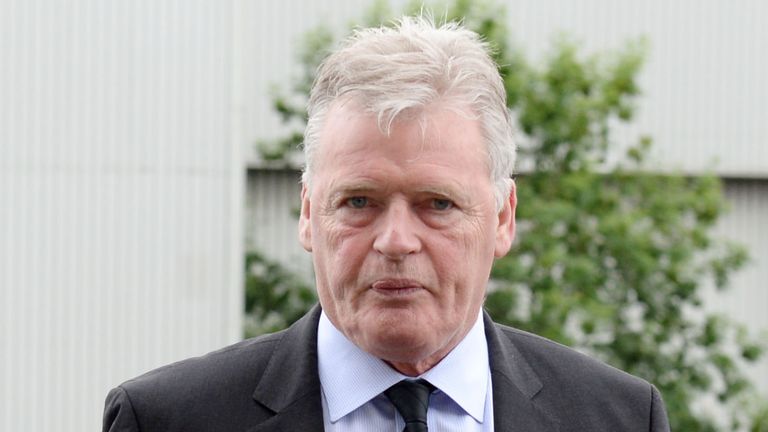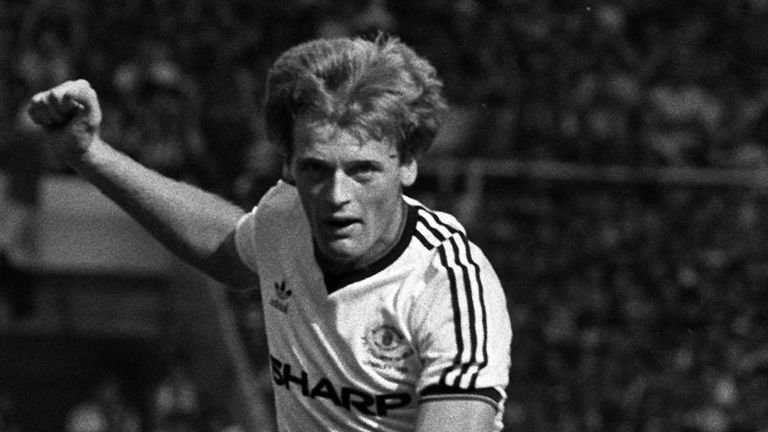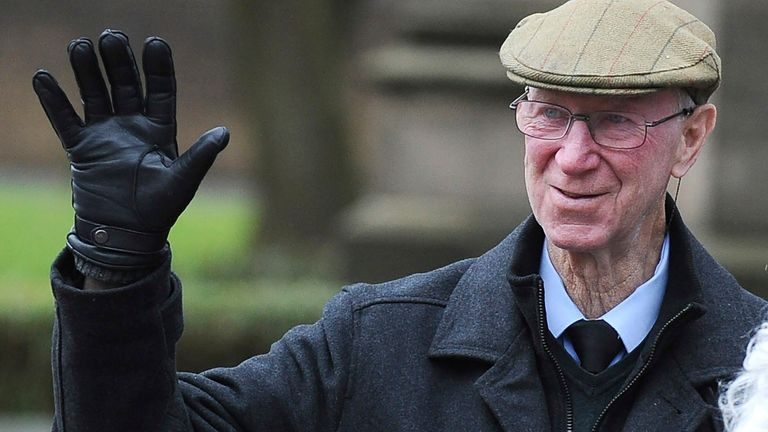Gordon McQueen: Former Manchester United, Leeds United and Scotland defender diagnosed with dementia
Gordon McQueen diagnosed with vascular dementia; former Scotland, Manchester United and Leeds United defender's condition confirmed by family in statement; McQueen wants footballers to be aware of risks of heading
Tuesday 23 February 2021 14:51, UK
Former Scotland, Manchester United and Leeds defender Gordon McQueen has been diagnosed with vascular dementia, his family have confirmed.
The 68-year-old started his career at St Mirren before moving to Elland Road in 1972, winning the First Division two years later and playing an important role in their run to the 1975 European Cup final.
McQueen went on to enjoy a successful time with Manchester United and represented Scotland on 30 occasions, scoring five goals.
Having managed Airdrie during a coaching career that included time at Middlesbrough, the ex-centre-back went on to become a popular TV pundit with Sky Sports.
A statement released by his wife Yvonne and children Hayley, Anna and Edward read: "In January, Gordon McQueen, our dad, was formally diagnosed with vascular dementia.
"As a family we felt it was important to let people know, particularly if raising awareness can help others in similar situations.
"Whilst as a family we've found it hard to come to terms with the changes in dad, he has no regrets about his career and has lived life to the full.
"He had unforgettable experiences in his playing days with Scotland, Manchester United and Leeds United, and also took so much from his coaching and TV work in more recent times.
"Football has allowed him to travel the world and experience things he could only have dreamed of.
"But he wants other footballers of today's generation to know there may be risks with persistent heading of the ball.
"Dad scored some important goals in his career and memorable headers but used to stay back in training, heading the ball to the goalkeeper for practice over and over.
"He does wonder if this has been a factor in his dementia as his symptoms appeared in his mid-60s.
"The last year in and out of lockdown has been tough as dad is such a sociable person and thrives off company.
"Social interaction is key for someone with dementia and he has been deprived of this for so long. He is fully aware of his friends and family still and his memory of all things football is sharp, but his cognitive functions are not the same.
- Sir Alex Ferguson: Fight against dementia football's duty
- Study reveals link between football and dementia
"We don't want people to be surprised by his condition or continue to ask him for media interviews or autographs which he is not able to do any more.
"Whilst he is looking forward to seeing people again after lockdown and getting the social aspect of life back, we know people will see a big difference in his health so wanted to be transparent.
"We thank everyone in advance for their understanding and hope sharing this news will help dad to face the future in a positive way."
McQueen's former Leeds team-mate Jack Charlton died with dementia last year and it was confirmed in recent months that Sir Bobby Charlton has been diagnosed with the disease.
The brothers' 1966 World Cup-winning team-mate Nobby Stiles also died with dementia last year.
The Football Association is currently supporting two independently-led research studies examining former professional players for early signs of neurocognitive degeneration.
The FOCUS study by the University of Nottingham is being funded by the FA and Professional Footballers' Association, while the HEADING study by the London School of Hygiene & Tropical Medicine is being funded by the Drake Foundation.




